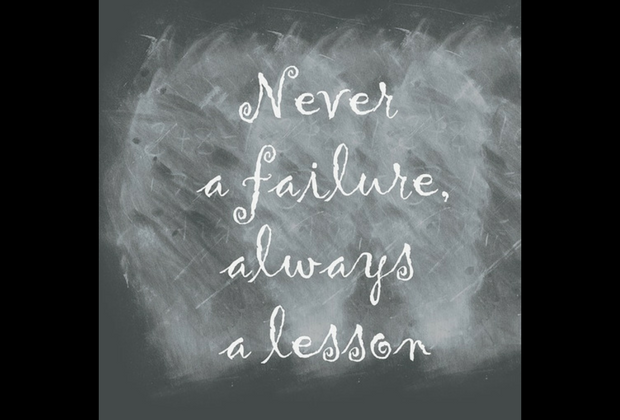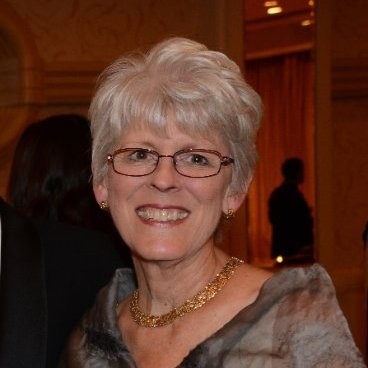You Celebrate Your Kids’ Wins. But Do You Celebrate the Fails, Too?

As a working mom, you most likely had to deal with obstacles along your career path to be where you are now. One concept you probably learned along the way is how to turn failures into successes. “Fail fast” is a concept widely embraced within disruptive companies. The idea is that the faster you get to a failure, the faster you can gain insights into what might work. It’s a celebration of failure that ultimately leads to success. Being free from the worry of failure encourages creativity, spontaneity, and confidence.
Failure has been the impetus for many amazing discoveries. Spencer Silver was attempting to develop a strong adhesive when he noted that one of his efforts did the opposite. Instead of sticking tightly, the adhesive caused paper to stick lightly and peel off easily. That failure eventually led to the invaluable Post-it Note, a product likely on your desk right now.
If your family enjoys salty snacks, thank chef George Crum for his failure. When a customer complained about mushy french fries, he sliced potatoes thin, fried them until brown, and thus created potato chips. Binge-watching shows with your kids wouldn’t be as tasty if Crum’s original potatoes hadn’t been underwhelming failures.
The point is that failure is good. One study found a striking correlation between early career failure and late-career success. So, having a few setbacks isn’t the end of the world. Of course, this is all well and good at face value. But moms and dads everywhere can find it difficult to lean into “fail fast” parenting. That’s because most haven’t been taught how to create safe “failure-friendly” environments so their kids can benefit from learning how to fail, recover, and try again.
Benefits of Promoting Failure at a Young Age
We naturally want our children to feel successful. And for some time, it’s been “in” to constantly validate our kids or try to build their self-esteem. But kids see through this quickly. They just have to look around to see that they probably aren’t the smartest, prettiest, or most creative. The result? Our credibility and their self-understanding suffer.
Children don’t need empty praise or platitudes. They need honesty and support. As much as we might hope to, we can’t shield our kids from disappointment or hurt forever. However, we can help them learn to focus on the long game and work on their perspective. This develops more resilience — not to mention a desire to be persistent.

Children who feel afraid to take risks will live more constrained lives and learn less from the world around them. They’ll hesitate to take training wheels off their bikes or learn how to dive. Sure, belly flops hurt. Yet, they’re powerful steps toward mastery. Besides, that eventual perfect dive feels so good!
The fact is, children are programmed to learn and experiment. Just watch a baby explore his toes with his fingers and mouth. He’s not worried about failure. He’s figuring out what it all means. And the toddler who keeps dropping a ball tossed to her? With the right encouragement, she won’t give up. She’ll laugh and enjoy the experience until she can easily catch a ball.
Getting Kids Comfortable With Setbacks
Your kids deserve the benefit of accepting that not everything results in a win. Below are some techniques to help them get comfortable with the inevitable failures that come with human existence:
1. Talk about what you’ve learned from failure.
Nothing opens the door to honest discussions with your kids like being transparent about your imperfections. Tell stories about when you were a kid and used poor judgment, lost a game, or had to retake a test. Explain how you used the failure as an opportunity to better yourself in some way.
For instance, say you weren’t the best musician in band. Maybe you were the worst but used your failures as the impetus to practice more, so you gradually built your mastery. Now, you can pick up a flute and play it easily, all because you turned a failure around.
2. Make it OK to fail.
What message do you give when your child can’t solve a problem or put Lego bricks together? Do you focus on the failure? Embarrass your child by saying things like, “How can you not know how to do that? It’s so easy!” Those aren’t ways to set the stage for confident failure.
Your child must feel secure about failing to get all the advantages that come from it. As you’ve likely experience in your own life — especially your career — mistakes build resilience. If your child loses a soccer or softball game, acknowledge the disappointment and pain. Don’t emphasize the missed goal or strike. Rather, talk about the long game. Also, don’t take away future successes by saying, “I knew you could do it.” Instead, appreciate the effort: “Good for you! That took a lot of work!”

3. Learn a new skill together.
Want to really show your child how to fail? Learn a board game, sport, foreign language, or other activity together. When I teach my grandkids a new card game, we start with some coaching rounds. After we’ve learned the basic rules and we’re on a fairly even playing field, I play just as competitively as they do. It’s healthy for them to know that grandma is a contender, too!
Sometimes, I’ll pause an activity and ask, “Are you sure you want to do that?” during the learning phase. But I won’t when the real game starts. They know that if they win, they’ve won fair and square. If they lose, I walk them through what happened. Then, I encourage them to try again.
Barry Manilow has a song called “God Bless the other 99.” He’s referring to the 99 out of 100 who don’t get chosen for a part during auditions. I’d like to leave you with his message of positivity that comes from failure: “I learned more from failure than I learned from success. I learned from no thank you, so much more than from yes. I learned to be willing to lead with my chin, and if I were willing to lose, I could win.”
So, let your kids fail fast, fail hard, and fail often. Ironically, failure’s the simplest way for them to succeed.
This guest post was authored by Suzanne Barchers

Suzanne Barchers, Ed.D., is the education advisory board chair at Lingokids, an educational platform for children ages 2-8. Suzanne is the former editor-in-chief and vice president of LeapFrog Enterprises and managing editor at Weekly Reader. She is an award-winning author of more than 250 books for teachers and children and served on advisory boards for PBS and the Association of Educational Publishers.
*******
Ms. Career Girl strives to provide valuable insights you can use. To see more from our columnists and guest authors, check these out! Or subscribe to our weekly email featuring our latest articles. We’re also present on Medium!

